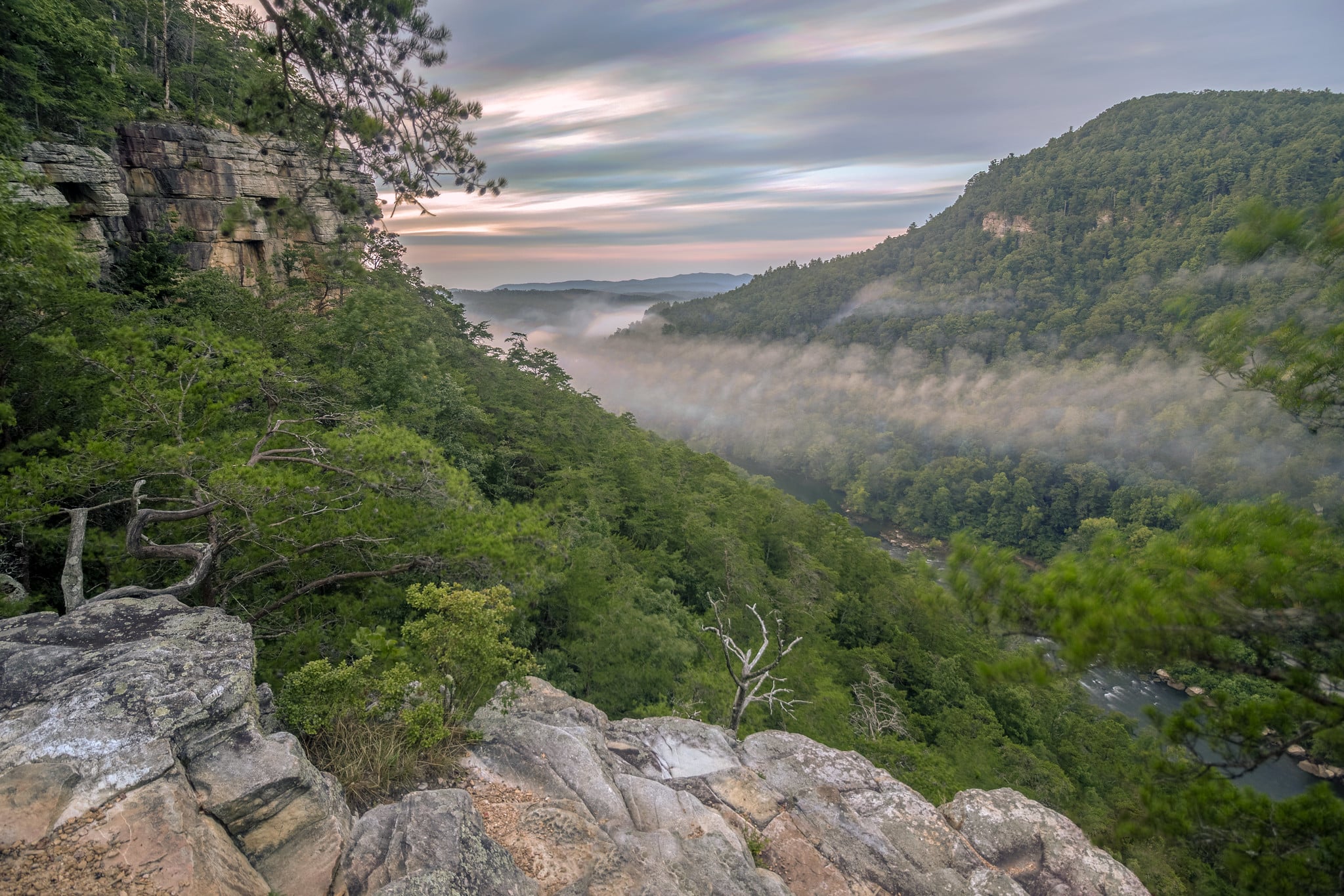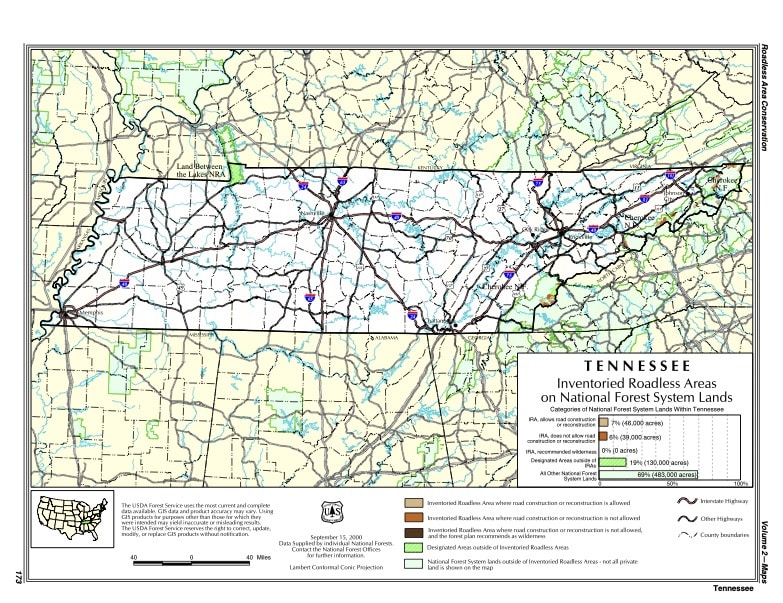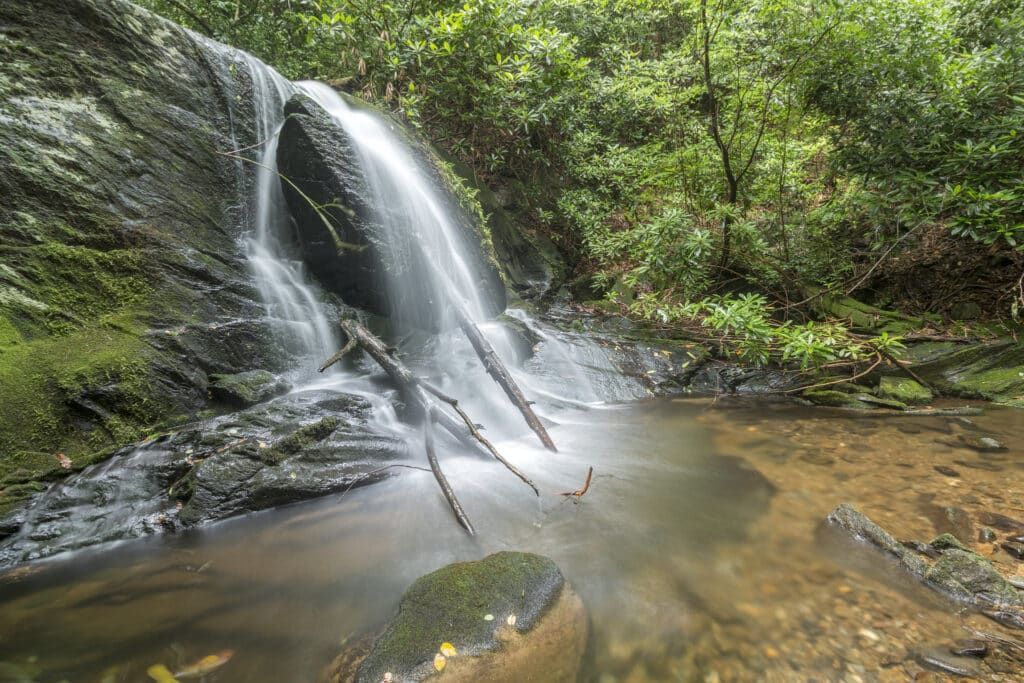‘Roadless Rule’ Rescinding Threatens 85,000 acres of Tennessee’s National Forests

TennGreen Land Conservancy responds to the federal rescinding that could open 85,000 acres of Tennessee forest to development.
More than 85,000 acres of Tennessee’s most remote and ecologically valuable public forest lands are at risk of losing federal protections under a new proposal from the U.S. Department of Agriculture.
Last week, U.S. Secretary of Agriculture Brooke Rollins announced the rescinding of the federal “Roadless Rule,” a long-standing policy that has preserved 59 million acres of national forests and grasslands across the country since 2001. Among the threatened landscapes are sections of Cherokee National Forest and Land Between the Lakes. Both, like all of Tennessee, are treasured for their biodiversity, cultural significance, and beauty.
“These forests are living, breathing ecosystems that support rare wildlife, clean our air and water, and offer Tennesseans a chance to reconnect with something wild and real,” said Jon D. B., Naturalist and Director of Communications at TennGreen Land Conservancy. “Our National Forests have been protected for a reason: they’re essential to the health of every living thing in our beautiful, immensely biodiverse state. While this proposal is concerning, I believe in the power of people who care deeply about the land. Together, we can ensure these forests remain wild.”
What Is the Roadless Rule?

Enacted during the Clinton administration after years of public input and advocacy from conservation groups, the Roadless Rule prevents road construction, timber harvesting, and other industrial activities in designated areas of national forests. It includes built-in exceptions for wildfire mitigation, invasive species removal, and emergency access—ensuring both conservation and public safety are prioritized.
In Tennessee, the rule safeguards approximately 85,000 acres of the state’s 698,000 total national forest acres. These protected areas include:
- Beaver Dam Creek
- Slide Hollow
- Elk Creek
- Bald Mountains
- Horse Cove
- Sycamore Creek
These are not only critical habitats for rare and endangered species. They are also cherished destinations for hiking, hunting, fishing, wildlife viewing, and solitude.
Misguided Justification
Rollins framed the rollback as a way to enhance wildfire prevention and support the timber industry. However, conservation groups point out that the existing Roadless Rule already allows for wildfire response, and say the move aligns more with allowing “severe” development and resource extraction.
Moreover, the current Roadless Rule already allows for necessary forest management, including fire breaks, controlled burns, and emergency wildfire management. In fact, building roads into untouched backcountry can actually increase wildfire risk by introducing invasive species, fragmenting forest ecosystems, and giving access to illegal activities that spark fires. Science and experience have shown that intact, undisturbed forests are often more resilient to fire than those opened up by development.
“This administration is completely out of touch with what Americans value in our public lands,” echoed Sam Evans, National Forests and Parks Program leader at the Southern Environmental Law Center.
TennGreen Land Conservancy, Tennessee’s oldest accredited statewide land conservancy, strongly opposes the rollback and is urging state and federal leaders to maintain protections for these irreplaceable areas as the process continues.

“Tennesseans have always valued the land—our mountains, forests, and rivers are part of who we are,” said Alice Hudson Pell, Executive Director of TennGreen Land Conservancy. “The Roadless Rule has helped safeguard some of our most special places, and we believe that with a united voice and shared vision, we can keep those protections in place. There is still time to speak up, and I’m hopeful that people across our state will come together to protect the wild places that inspire and sustain us all.”
What You Can Do
The USDA has not yet released the full rollback plan. There is still time to use your voice:
- Contact your elected officials to express your support for keeping the Roadless Rule in place.
- Share this article with your community to build awareness.
- Support TennGreen and other land conservancies’ work to protect Tennessee’s public and private wildlands.
Together, we can ensure these lands remain protected—not just for today, but for generations to come.
Images: Cherokee National Forest, courtesy of Chuck Sutherland

